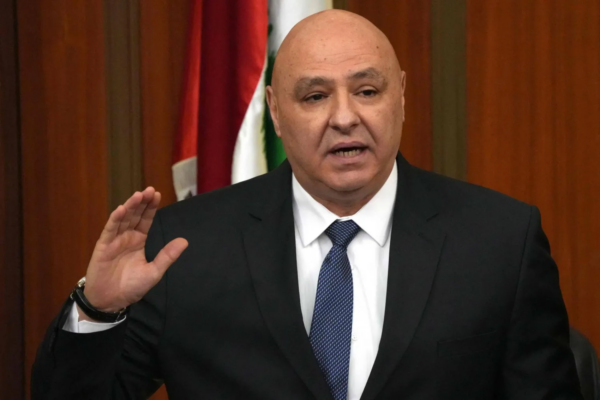BEIRUT (Reuters) – Lebanon’s President Joseph Aoun will ask Saudi Arabia to reactivate a $3-billion aid package to the Lebanese army in his visit to the kingdom next week, Aoun said in an interview with Asharq television broadcast on Friday.
Aoun, who was serving as commander of Lebanon’s army before he was elected president on January 9, is set to meet with Saudi Crown Prince Mohammed bin Salman on Monday in his first trip abroad.
He told Asharq he would ask Riyadh “if it is possible to reactivate the grant” halted in 2016, after Lebanon failed to condemn attacks on Saudi diplomatic missions in Iran.
Saudi Arabia once spent billions in Lebanon, depositing funds in the central bank, helping to rebuild the south after the 2006 Hezbollah-Israel war, and supporting a number of Lebanese politicians, only to see Hezbollah grow more powerful with Iran’s support and its influence spread across the Middle East.
But recent months have seen seismic political shifts in the region, with Israel pummelling Iran-backed Hezbollah last year and Hezbollah’s Syrian ally Bashar al-Assad toppled in December.
“I hope and I await from Saudi Arabia – and especially the Crown Prince – to correct the relationship in the interests of both countries,” Aoun said, saying he hoped for strengthened economic and political ties.
Lebanon faces a huge reconstruction bill following a year of Israeli strikes on the country, but Lebanese officials and diplomats say foreign support – including from the Gulf – is contingent on Beirut enacting long-awaited financial reforms.
Aoun said Lebanon was committed to those reforms but hoped that the reconstruction aid in turn would come “step by step” to allow for rebuilding so that Lebanese displaced from destroyed villages in the south could return home.
About Saudi Arabia’s suspension of the Grants
Saudi Arabia suspended the $3 billion aid package for the Lebanese army nine years ago in what an official called a response to Beirut’s failure to condemn attacks on Saudi diplomatic missions in Iran.
Saudi Arabia was enraged when Iranians, protesting against the kingdom’s execution of a Shi’ite Muslim cleric, raided its missions last month – and many countries in the region came out in support of Riyadh.
The Saudi SPA news agency quoted an official source saying Lebanon had not joined in condemning the attacks at two recent summits because Beirut had come under pressure from Lebanon’s powerful Shi’ite Muslim movement Hezbollah.
The unnamed official added that Riyadh had also canceled the remainder of $1 billion in aid it had earmarked for Lebanon’s internal security service.
The moves underlined the deep sensitivities in a region riven by the rivalry between Sunni Muslim power Saudi Arabia and the leading Shi’ite power Iran.
Saudi Arabia pledged the aid package for the Lebanese army in 2013 in what then-Lebanese President Michel Suleiman called the largest grant ever to the country’s armed forces.
The first shipment of French weapons and military equipment had already been delivered to Lebanon in April 2012 under the Saudi-funded deal to bolster the Lebanese army’s fight against ISIS, the Islamist militants encroaching from neighboring Syria.
Former Foreign Minister Gebran Bassil, who attended the January 2013 summits, refused to vote on a joint Arab statement condemning the Saudi mission attacks because he said it also criticized his ally Hezbollah

